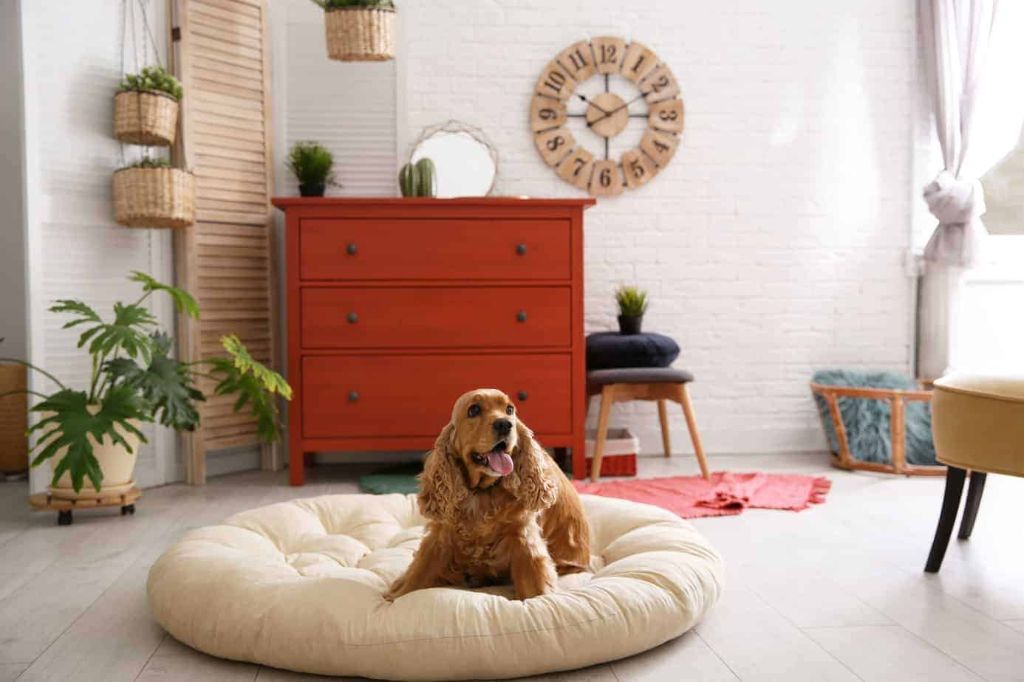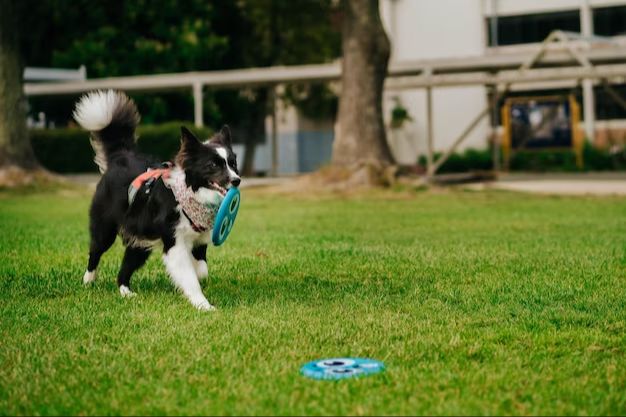A Beginner’S Guide To Choosing The Right Dog Breed For You
Choosing the right dog breed for your lifestyle and needs is an important decision that requires careful consideration. The purpose of this beginner’s guide is to provide key factors to think about when selecting a dog breed, so you can make the best choice for your family and situation. Having the right dog breed that fits your home, schedule, activity level, and personality can lead to a happy and fulfilling relationship between owner and dog for many years.
Consider Your Lifestyle
Your lifestyle is one of the most important factors to consider when choosing a dog breed. An active lifestyle with plenty of exercise and outdoor adventures suits high energy breeds like Border Collies and Labrador Retrievers, while more sedentary apartment living may be better suited for low energy dogs like Greyhounds or French Bulldogs according to Tips to Choose the Right Dog Breed for Your Lifestyle.
The amount of living space you have is another essential lifestyle consideration. Large breeds like Great Danes and Saint Bernards require more room to move around comfortably, while smaller breeds like Pugs and Chihuahuas are better suited to compact city apartments according to How to Choose a Dog Breed That Suits Your Lifestyle. Always research breed-specific spatial needs.
Your daily schedule is also important. Busy professionals who are away from home for long stretches need more independent breeds that can be left alone like Greyhounds or Rhodesian Ridgebacks. Retirees and work-from-homers should consider companion breeds that crave more human interaction like Cavalier King Charles Spaniels or Havanese according to How to choose a dog breed based on your lifestyle.
Considering lifestyle factors like activity level, living space, schedule and more will help match you with a breed that fits seamlessly into your daily life.
Think About Size
Dog size can have a big impact on your decision of which breed to get. There are pros and cons to small, medium, and large dog breeds that you’ll want to consider.
Small dogs (under 20 pounds) have some advantages like being less expensive to care for, easier to travel with, and requiring less space in your home and yard. However, they may be more fragile, prone to injury, and tend to have longer lifespans, meaning a longer commitment. Some small breeds are known for barking a lot as well (Runball).
Medium dogs (20-50 pounds) offer a nice balance of many of the pros of small and large dogs without as many drawbacks. They are moderately active, requiring less exercise than large breeds, and are more affordable than giant breeds.
Large and giant dogs (over 50 pounds) require more space, more food, and higher medical costs. But they can be very loyal, protective, and better suited for athletic owners. Their shorter lifespan is a consideration as well (Blue Buffalo). Pick a larger breed only if you are prepared to provide sufficient exercise and space for the dog’s needs.
Take Care Requirements Into Account

Different dog breeds have vastly different grooming and care needs. For example, Poodles, Bichon Frises, and Portuguese Water Dogs require extensive brushing and professional grooming [1]. Their thick, curly coats need to be clipped and trimmed regularly to prevent matting and skin irritation. Shedding breeds like German Shepherds and Labrador Retrievers require less grooming but their loose hair needs to be managed through frequent brushing. Low maintenance short haired dogs like Greyhounds need only occasional brushing. Consider if you are able to properly care for your desired breed’s specific grooming requirements.
Exercise needs also vary between breeds. High energy dogs like Border Collies and Jack Russell Terriers demand extensive daily exercise and stimulation. Lower energy companion breeds like Cavalier King Charles Spaniels and Bulldogs require less intense but still regular exercise. Make sure your lifestyle can accommodate the exercise needs of the breeds you’re considering.
Lastly, shedding amounts differ greatly between breeds. Heavy shedding dogs like German Shepherds and Siberian Huskies require frequent vacuuming and cleaning. Low shedding breeds produce less loose hair but often need professional grooming instead. There are also low maintenance short haired dogs that shed minimally. Assess your tolerance for dog hair when choosing a breed.
Choose an Age Group
When looking for a new canine companion, one of the most important considerations is the dog’s age. There are pros and cons to adopting a puppy, an adult dog, or an older senior dog.
Puppies require a huge time commitment for potty training and socialization in those early months. However, you get the benefit of molding the pup’s personality and training from a young age. Healthwise, puppies need a series of vaccinations and vet checkups in the first year. Potential health issues may not arise until later in life.
Adult dogs ages 1-7 years offer the best of both worlds in some ways. Their personalities are already developed so you can better match to your lifestyle. Adults are calmer and require less rigorous house training. On the downside, they may have some bad habits engrained at this point that require training to correct. Adult dogs still have many active years ahead most likely. Source
Senior dogs, 8 years and older, make excellent low maintenance companions. They are likely potty trained and mellow in temperament. However, health problems can crop up more frequently in a senior dog’s golden years. These may require medication, vet visits, or dietary changes to manage. Their lifespan is shorter than a young puppy adopted at the same time.
Take your own lifestyle and needs into account when deciding which age group may suit you best. There are wonderful dogs waiting for homes in every age bracket!
Consider Your Family
One of the most important factors to consider when choosing a dog is how it will fit into your family dynamic. Some breeds do better in homes with children, while others may not have the patience or temperament to deal with a lot of activity and noise.
For families with young kids, breeds like the Labrador Retriever, Beagle, and Golden Retriever are great choices. They tend to be patient, playful, and gentle with children. Bulldog breeds like the French Bulldog and Pug are also kid-friendly and adapt well to the noise and activity of family life.
If you have other pets, look for breeds known for getting along well with other animals. Breeds like the Poodle, Cavalier King Charles Spaniel, and Bichon Frise tend to thrive in multi-pet households. However, dogs like Terriers may not do as well, as they tend to have high prey drives. Consider your current pets’ ages, activity levels, and temperaments when choosing a dog.
It’s also important to consider the ages of your children. Very young kids need supervision around any dog, so an extremely patient breed is best. Once kids reach 5-6 years old, you can consider slightly more active breeds. As kids become teenagers, their schedules get busier, so breeds that are calmer when left alone for periods of time may work better.
Taking the time to think about how a dog will fit into your family’s lifestyle and needs will help ensure a good match and a lifetime of happiness together.
Decide on Energy Level
When deciding on a dog breed, it’s important to consider the typical energy level and activity needs of different breeds. Dogs with lower energy levels require less exercise and stimulation, while high energy breeds need plenty of activity to stay happy and healthy.
According to Leo&Lucky’s, low to moderate energy dog breeds include dachshunds, French bulldogs, havanese, Italian greyhounds, miniature pinschers, papillons, pugs, and shih tzus [1]. These breeds are content with short daily walks and light play. Basset hounds, bulldogs, chow chows, and Maltese are other low energy options.
Medium energy breeds like cocker spaniels, corgis, great danes, greyhounds, labradors, and poodles need 30-60 minutes of exercise daily according to PD Insurance [2]. A couple of brisk walks plus playtime will keep them satisfied.
For very active owners, high energy breeds like Australian shepherds, border collies, boxers, dalmatians, huskies, vizslas, and weimaraners require intense exercise and near-constant stimulation according to DogTime [3]. These dogs thrive with long runs or hikes and interactive play. Their needs could easily exceed two hours of activity per day.
Consider your own activity level and then choose a breed whose energy matches your lifestyle. An active owner paired with a mellow dog or a sedentary person paired with a hyper dog is a recipe for an unhappy partnership.
Think About Health Issues
When choosing a dog breed, it’s important to be aware of any health problems the breed may be prone to. Some common breed-specific health issues to consider include:
Labrador Retrievers – Hip and elbow dysplasia, obesity, ear infections
German Shepherds – Hip and elbow dysplasia, digestive problems, bloat
Bulldogs – Breathing problems, hip and elbow dysplasia, skin infections
Golden Retrievers – Hip and elbow dysplasia, cancer, eye problems
Boxers – Cancer, heart conditions, hip dysplasia
Poodles – Addison’s disease, seizures, hip dysplasia, eye issues
Beagles – Obesity, epilepsy, allergies
Rottweilers – Hip dysplasia, bloat, bone cancer
Yorkshire Terriers – Portosystemic shunt, collapsing trachea, knee problems
Knowing the common health issues for breeds you are considering can help you make an informed decision and prepare to care for any conditions your dog may develop.
Source: Common Health Issues for Popular Dog Breeds
Research Breed Temperaments
A dog’s temperament significantly impacts how well they will fit into your lifestyle and family. While some believe breed inherently determines temperament, recent studies show personality can vary greatly even within the same breeds. According to one 2022 study published in Science, “Labradors could be loving or standoffish. German shepherds, aggressive or mellow.” (source) So while breed tendencies may exist, meeting the individual dog and understanding their unique personality is key.
Some temperament traits like energy level, friendliness, dominance, prey drive, and trainability can determine compatibility with your home. For example, herding breeds tend to be intelligent and energetic. This high energy may overwhelm a more sedentary family. Alternatively, a mellow companion breed like a Cavalier King Charles Spaniel may suit a laidback lifestyle. Consider your daily activity levels and household dynamic when researching breed temperaments.
Additionally, certain breeds like terriers often have high prey drives which can cause issues in multi-pet homes. And watchdogs like German Shepherds tend to be more protective and territorial. So factor in other pets and any small children when selecting a temperament that fits your family.
While each dog is an individual, understanding general breed temperament tendencies can set you up to make the most compatible match. But be sure to then spend time interacting with your potential pup to understand their unique personality.
Conclusion
In summary, choosing the right dog breed for you is an important decision that requires careful consideration of various factors. Take the time to reflect on your lifestyle, family situation, activity level, and personality traits to determine the ideal size, energy level, and temperament for your new furry companion. Do thorough research on breeds that seem to fit your needs and consult with reputable breeders to learn more. Finding the perfect match will lead to many happy years with your new best friend.
It’s essential to take a methodical approach, evaluating all aspects of your life and desires in a future dog. While a breed may look cute or have a great reputation, it’s not necessarily the best fit for you. Don’t rush this big choice – thoughtful preparation will pay off with a dog who seamlessly transitions into your home and lifestyle. With the right breed for your unique situation, you’ll form a rewarding bond built on mutual understanding and compatibility.






